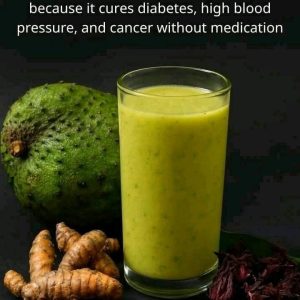Are you looking for a natural way to enhance your health and well-being? Ginger tea is a soothing, flavorful beverage with scientifically supported health benefits. While not a cure-all, ginger tea can support your health in various ways when consumed in moderation. Here’s an updated guide to ensure accurate and safe information.
Why Ginger?

Ginger is widely recognized for its medicinal properties. It contains bioactive compounds like gingerol, which have anti-inflammatory and antioxidant effects. These properties make ginger an excellent natural remedy for alleviating mild symptoms like digestive discomfort or nausea and for supporting immune health.
How to Make Ginger Tea
Ingredients:
- Fresh ginger root (about a 1-inch piece)
- 1 liter of water
- Optional: Honey or lemon for taste
Instructions:
1. Prepare the Ginger
- Peel the ginger root and thinly slice it to release its active ingredients.
2. Boil the Ginger
- Add the ginger slices to a pot of water and bring it to a boil.
- Reduce the heat and let it simmer for 10-15 minutes.
3. Strain and Serve
- Strain the tea to remove ginger pieces.
- Add honey or lemon for additional flavor and potential health benefits.
Verified Health Benefits of Ginger Tea

1. Digestive Support
- Ginger stimulates digestive enzymes, which may alleviate mild bloating, indigestion, and constipation.
2. Nausea Relief
- Ginger is clinically shown to reduce nausea caused by motion sickness, pregnancy, and certain treatments like chemotherapy.
3. Mild Anti-Inflammatory Effects
- Ginger may help reduce mild inflammation or discomfort, particularly in conditions like arthritis, but it is not a substitute for medical treatments.
4. Immune System Support
Ginger’s antibacterial and antiviral properties can provide gentle immune support, particularly during cold and flu season.
Precautions
- Moderation is Key: Consuming more than 4g of dried ginger (or 10g of fresh ginger) daily can lead to side effects such as heartburn, diarrhea, or stomach irritation.
- Health Conditions: Those with gallstones, blood clotting disorders, or on medications such as anticoagulants, should consult a healthcare provider before consuming ginger regularly.
- Pregnancy: While ginger can help with nausea, pregnant individuals should consult their doctor to confirm appropriate usage.
Conclusion

Ginger tea is a simple, natural way to support overall wellness. It can aid digestion, relieve nausea, and provide mild anti-inflammatory benefits. However, it’s essential to consume it responsibly and understand that it is not a replacement for professional medical treatments.
If you’re looking for a warming, healthful drink to complement your routine, ginger tea is an excellent choice. Always consult a healthcare professional if you have underlying health conditions or are unsure about adding ginger to your diet. Enjoy the benefits of this powerful root, one cup at a time!




